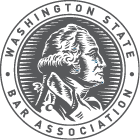Entity Regulation Pilot Project Application Portal Open
Are you ready to apply?
Want to learn more? Fill out this interest form to receive the latest updates about the pilot project.
Applicant Resources
- Entity Regulation Pilot Project Web Snack
Short videos with information and background about the pilot. - Pilot launch press release
- Pilot Project Fact Sheet
- Access to Justice Conference
The 2025 Access to Justice Conference featuring a keynote address on Community Justice Workers and the Entity Regulation Pilot.
Open Call for Innovative Ideas to Deliver Legal Services
Washingtonians face a growing gap between the urgency of their legal needs and the legal help they can actually access. In an age of innovation and enterprise — which are hallmarks of the Pacific Northwest — the Washington Supreme Court wants to explore whether that gap can be meaningfully reduced by opening the legal services market to new, modern service models. Toward that end, businesses and nonprofits are being invited to offer legal services — for the first time in state history — via a process called the Entity Regulation Pilot Project. Until now, only people licensed by the Court* (mainly lawyers) have been allowed to own law firms and practice law. Through the pilot project, businesses and nonprofits with innovative services model will be authorized to operate outside current regulatory limitations under carefully monitored, timebound conditions.
We encourage you to learn more and apply for the Entity Regulation Pilot Project! The main prerequisite qualification is outside-the-box, innovative thinking about how to expand the legal services market.
*Washington has three license types authorized to practice law — lawyers, limited practice officers (LPO), and limited license legal technicians (LLLT).
Are you a potential applicant?
Here are the types of entities that might consider applying:
- Traditional law firms innovating—bringing persons who are not licensed to practice (i.e., not lawyers or LLLTs) into firm ownership or using investment from persons not licensed to practice law to expand operations and reach or introduce new service delivery models.
- Law-focused companies practicing law— adding legal services by an entity already delivering law-related services and owned by individuals not licensed to practice law.
- New entities using technology to deliver legal services—creating entirely new legal service delivery models with persons not licensed to practice law.
- Non-law companies expanding into law— new entrants in the market that combine law and non-law expertise, by, for example, providing a holistic “one-stop-shop” or new offshoot from their existing services.
- Intermediary platforms—connecting marketplaces of consumers with licensed legal professionals.
Envisioning the Future
To apply for the pilot, entities must specify which regulatory rules governing the practice of law in Washington their new business model will “test”—that is, which Washington court rules, statutes, or other regulatory rules should be suspended or modified during their participation in the pilot to allow for the new business model. Applicants will also be asked how they expect their business model will meaningfully expand access to legal services for the public while demonstrating rigorous consumer protection protocols, to be closely overseen by the Court. Each entity will be required to select a compliance officer tasked with ensuring the entity‘s adherence to its authorizing court order, public protection measures, and reporting requirements.
Here are hypothetical examples of entities and business models that would be eligible to apply for the pilot project:
- An existing law firm specializing in workers compensation accepts investment from a private equity company to develop an online tool to streamline legal services and increase efficiency while retaining its traditional firm structure. (RPC 5.4; RCW 2.48.180(2)(b)-(c)).
- An existing company (not a law firm) providing general legal information, forms, and document assembly services in family law matters expands to hire licensed legal professionals, so that when issues arise for a customer which may require one-to-one delivery of legal services, a staff licensed legal professional may deliver the needed legal services directly to the public. (RPC 5.4(d); LLLT RPC 5.4(d); RCW 2.48.180(2)(d)).
- A company connects consumers with debt-related legal issues to licensed legal professionals through an online platform. The platform assists in facilitating the client relationship. The company then shares legal fees directly with licensed legal professionals and provides practice support to lawyers through its platform (RPC 5.4(a); LLLT RPC 5.4(a); RCW 2.48.180(2)(e)).
- An existing accounting firm (wholly owned by persons not licensed to practice law) expands to offer estate-planning legal services by adding licensed legal professionals to its ownership structure and hiring licensed legal professionals to deliver legal services directly to its clients. (RPC 5.4(b) and (d); LLLT RPC 5.4(b) and (d); RCW 2.48.180(2)(b)-(d)))
- A nonprofit delivering social services to low income individuals expands the scope of its services to have its employees who are not licensed to practice law deliver direct, limited, and targeted legal services related to assistance with housing assistance and eviction actions (RCW 2.48.180(2)(a))
- A technology company owned entirely by persons not licensed to practice law designs a software application to assist Washingtonians in determining whether they are eligible to have their medical debt reduced or waived and assists individuals in filling out related forms to do so. (RCW 2.48.180(2)(c))






